7 Best Small Pets for Kids
Updated Oct. 15 2020, 3:44 p.m. ET
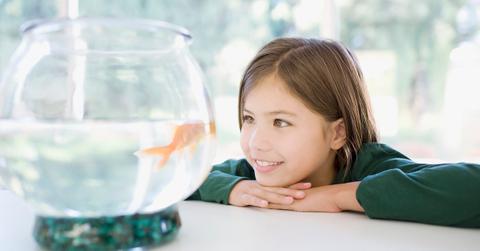
Not all homes are ideal environments for big pets. German Shepherds and Huskies aren’t for everyone and even some cats can get big. If you’re living in small quarters or want to get a “starter pet” that your child can take care of, bigger is definitely not better.
There are plenty of reasons why you’d want to get a pet even if your space isn’t conducive to a cat or dog. Any pet owner knows firsthand that there are countless benefits to pet ownership — psychologically, the pros of young children owning a pet have been proven. According to research out of Michigan State University, the primary lessons that come with pet ownership are responsibility, trust, and compassion. In addition to that, young kids are able to learn about bereavement and grief, loyalty, respect, and patience when they have pets that they call their own.
If this is your child’s first pet, families that may be feeling reticent about getting a pet might want to start small. If you haven’t grown up with Bull Mastiffs your whole life, something tinier — and therefore easier to deal with, at least in some aspects — might be the best option for your kids’ first pet.
Fish
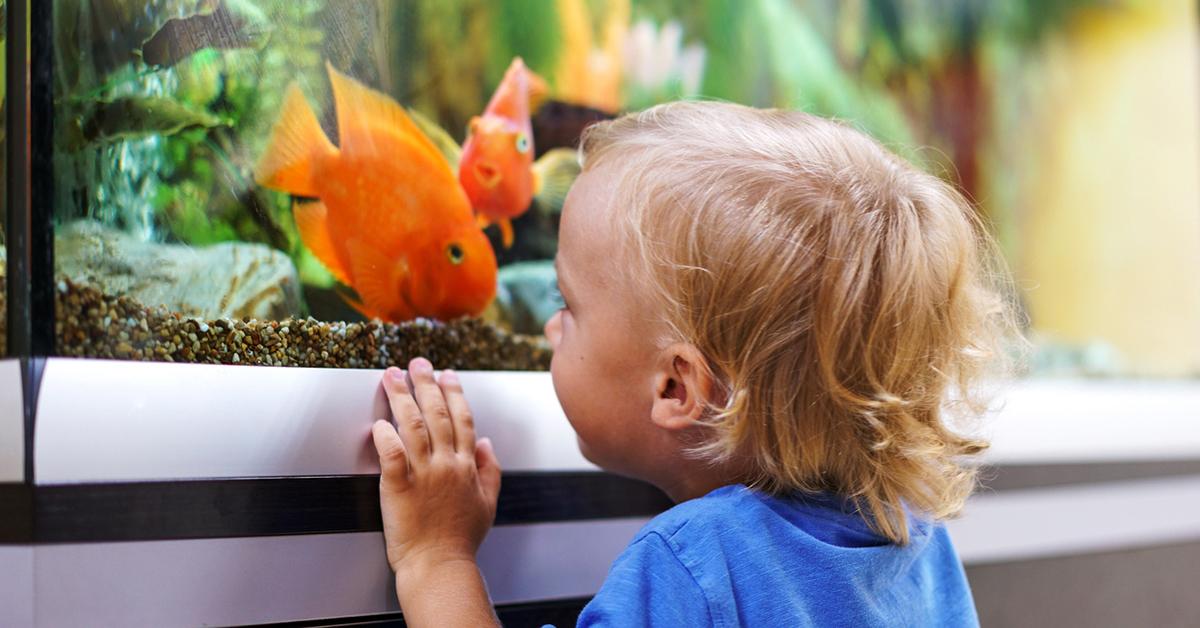
Fish are one of the smallest, most hands-off pets you can own. Apart from feeding them flakes and cleaning their tanks every now and again, the care and effort is relatively minimal. Plus, when it comes to children, the feeding of fish is a great way to teach responsibility and to delegate age-appropriate tasks to kids. It can help children foster independence, feel a sense of purpose, and develop their personal responsibility.
According to Angie’s List, some of the best starter fish include betta fish, goldfish, guppies, and tetra fish. If you have younger children, beware; you may want to store the fish food in a high-up place in order to prevent accidental spillages from happening. (Nothing against toddlers, but they’re kind of known for overfeeding fish!)
Another downside, of course, to owning fish is their short lifespan. Fish have a habit of croaking, leaving parents bewildered and unsure about how to handle the death conversation with children. However, if this happens to you, you could look at it as an opportunity to open up a dialogue about death and grief with your child.
Hedgehog
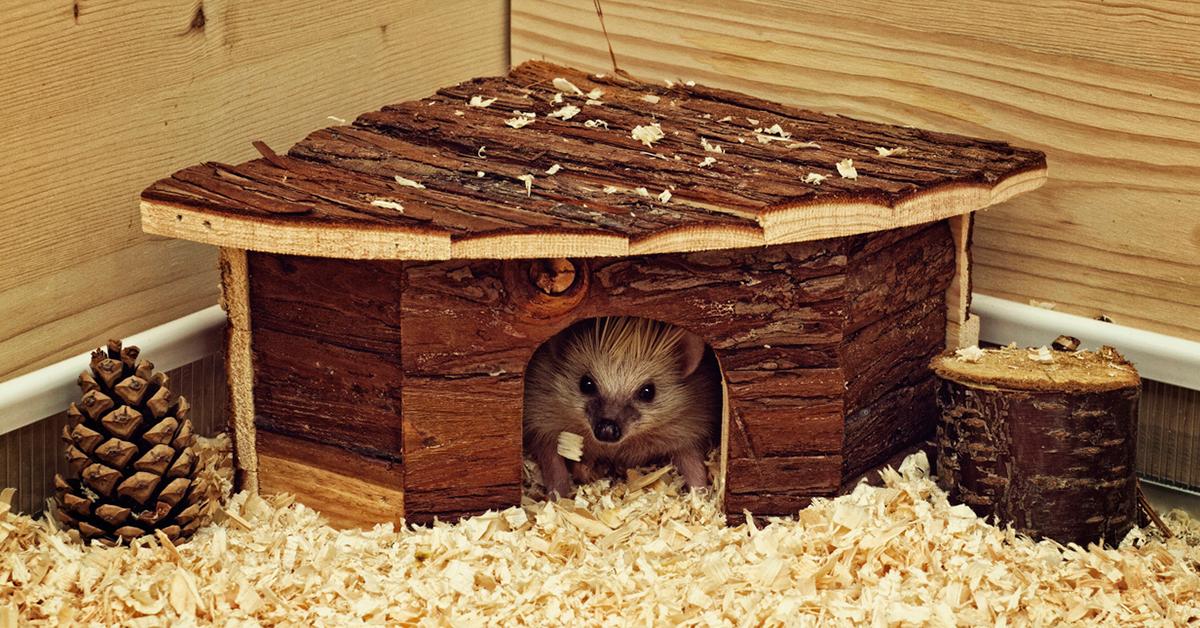
The hedgehog often gets overlooked as a family’s first, small pet, and for good reason. They’re not the most well-known type of pet in comparison to fish and other animals, but also because owning a hedgehog as a pet is not legal in every state.
Owning a pet hedgehog is legal in most states in the U.S., except for California, Pennsylvania, Hawai’i, Georgia, and the Five Boroughs of New York City, according to Hamor Hollow Hedgehogs. (Residents in New Jersey and Wisconsin can legally own a hedgehog, but may require veterinary inspection and permits first.)
Hedgehogs can be social little pets that provide emotional support and can make children happy. Caring for hedgehogs can also give a child a sense of purpose and responsibility, however, there are also potential disadvantages to owning a hedgehog.
In an interview with Parents, Dr. Quesenberry explained that hedgehogs — while cute, affable, and small enough for young hands to hold — tend to require a lot of veterinary care. Dr. Quesenberry said, “Hedgehogs require more care and are prone to more health problems than other small pets. They have a higher incidence of disease and sometimes develop oral cancer and get mites, so your vet bills may be a bill higher for a hedgehog.”
Ultimately, the decision of which small pet to get is up to you and your family. If you think the benefits of owning a hedgehog outweigh the downsides, then the hedgehog could be the right pet for your family.
Rabbit
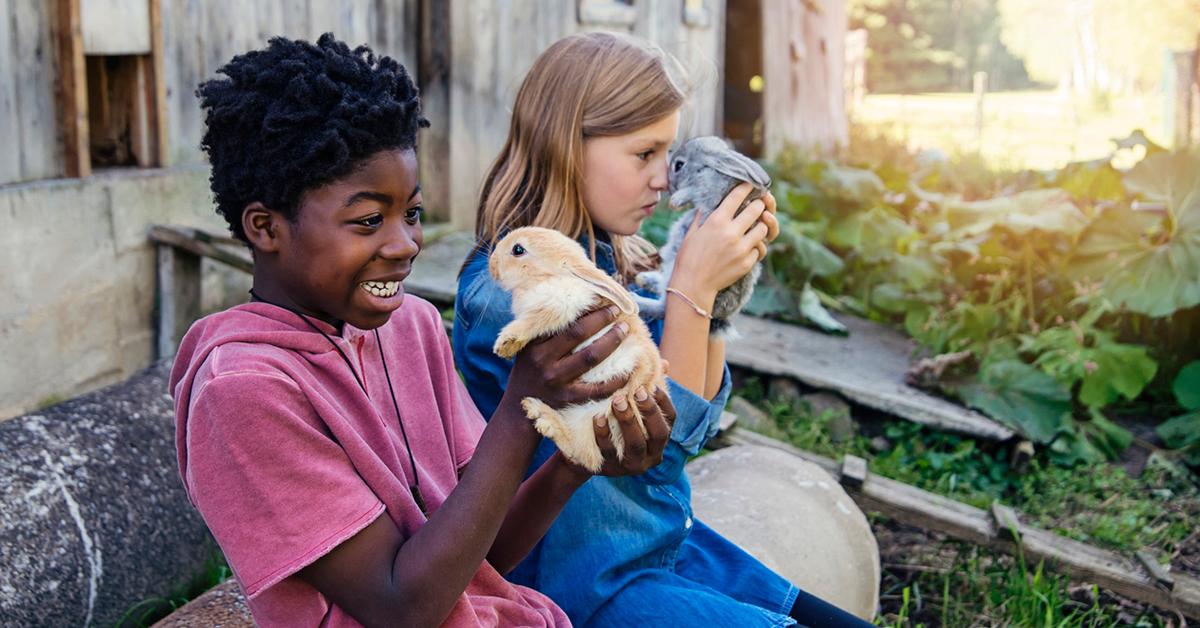
Rabbits can be an excellent choice of a small pet, especially because bunnies can be hypoallergenic. If you have a child with allergies, a bunny might be a great option.
Children can definitely handle feeding, providing water, and even walking bunnies on a leash, but adult supervision is key. Some people opt to keep their rabbit in a cage outdoors (at least during the warmer months) or allow their rabbit to live indoors in a cage.
Some downsides of rabbits are the potential health repercussions. Rabbits can become aggressive, so spaying or neutering is crucial to reduce the risk of aggression. Female rabbits are also particularly susceptible to uterine cancer, so spaying is important for that reason as well.
Benefits of owning a rabbit include fostering a sense of responsibility and independence in children, as well as a rabbit’s life span. They tend to live much longer than a fish; in fact, pet rabbits have similar life spans to dogs — living anywhere from eight to 12 years.
Gerbils
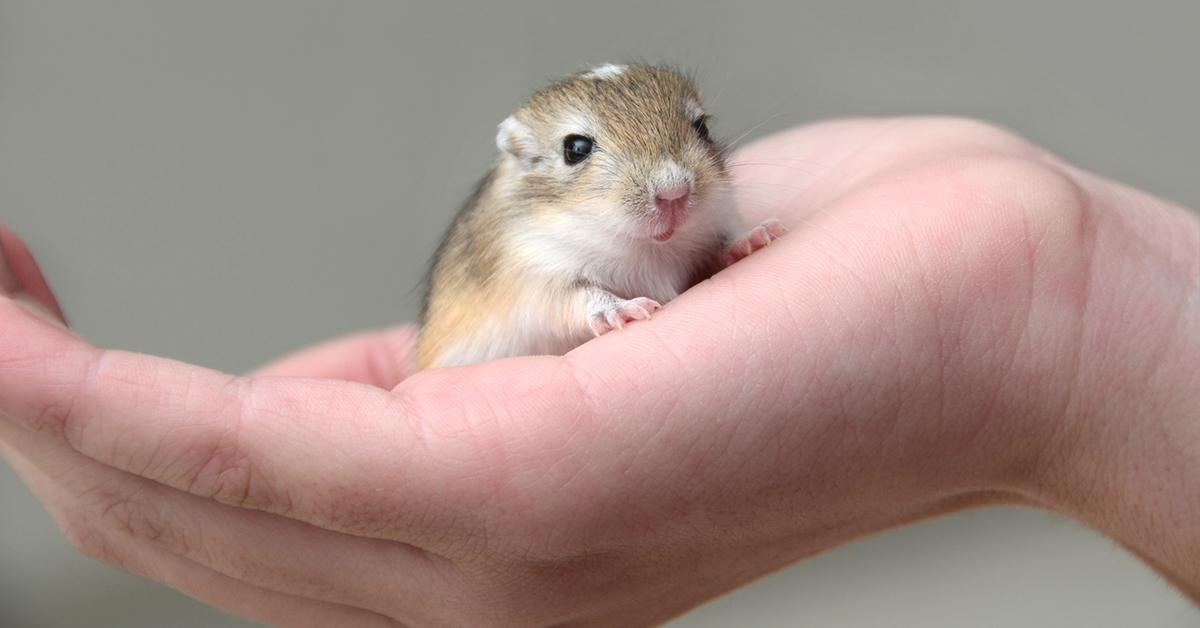
A gerbil — or maybe gerbils — is the perfect pet for hands-off children who want a pet but maybe can’t handle much responsibility without heavy supervision. Gerbils enjoy being observed and taken care of, but they don’t require as much medical attention as a hedgehog or as much overall attention as say, a dog.
Gerbils are easy to feed and don’t tend to be aggressive. However, if your child — or anyone in your family, for that matter — is going to hold the gerbil, you might want to do it in a room with a closed door. Gerbils are really fast so if they get away from you, it might be difficult to restore them back to their cage.
Other than that, it’s important to consult a veterinarian to see if your climate is habitable for a gerbil. These small creatures don’t fare well in humid areas, so a bit of research and a recommendation from a vet might be best before buying a gerbil.
Hamsters
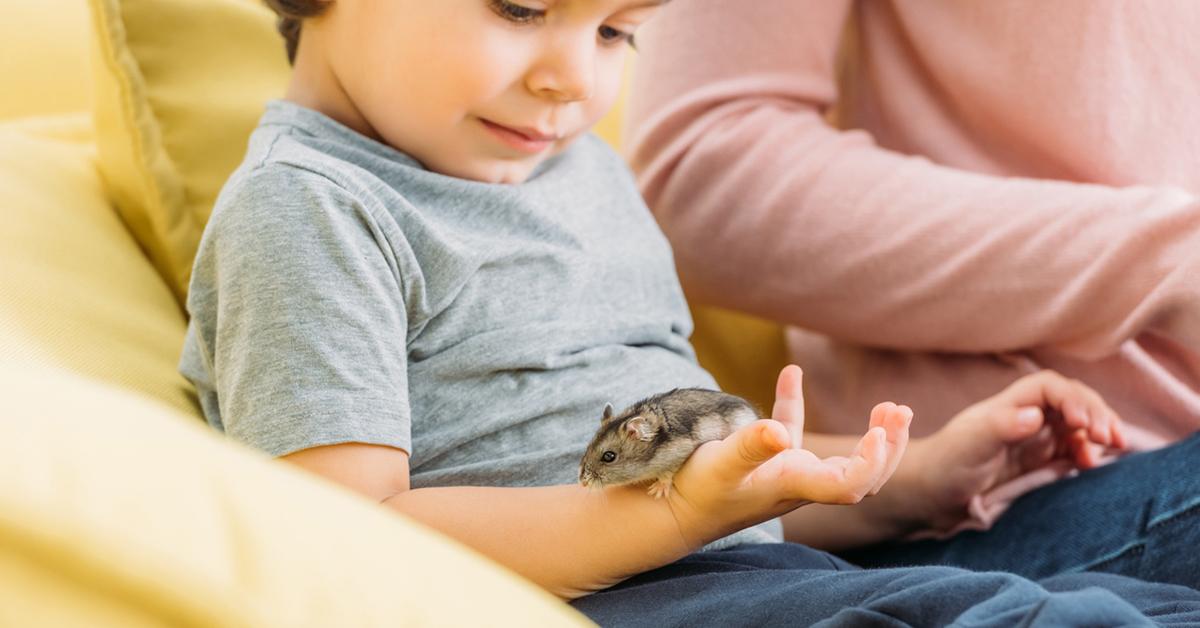
A hamster is a lot like a gerbil in that it makes a great first pet that’s small and easy to take care of. However, hamsters can be much more aggressive than gerbils. They might nip and get aggressive, so be wary of that.
Hamsters also have a relatively short life span — about three years. That’s also something to consider when choosing a hamster for your family.
On the bright side of things, hamsters are entertaining and often enjoy running through tunnels, running on wheels, and sleeping — all activities a child might be fascinated by. They make a great first pet; it just depends on what kind of small pet will work best for your family.
Guinea Pig
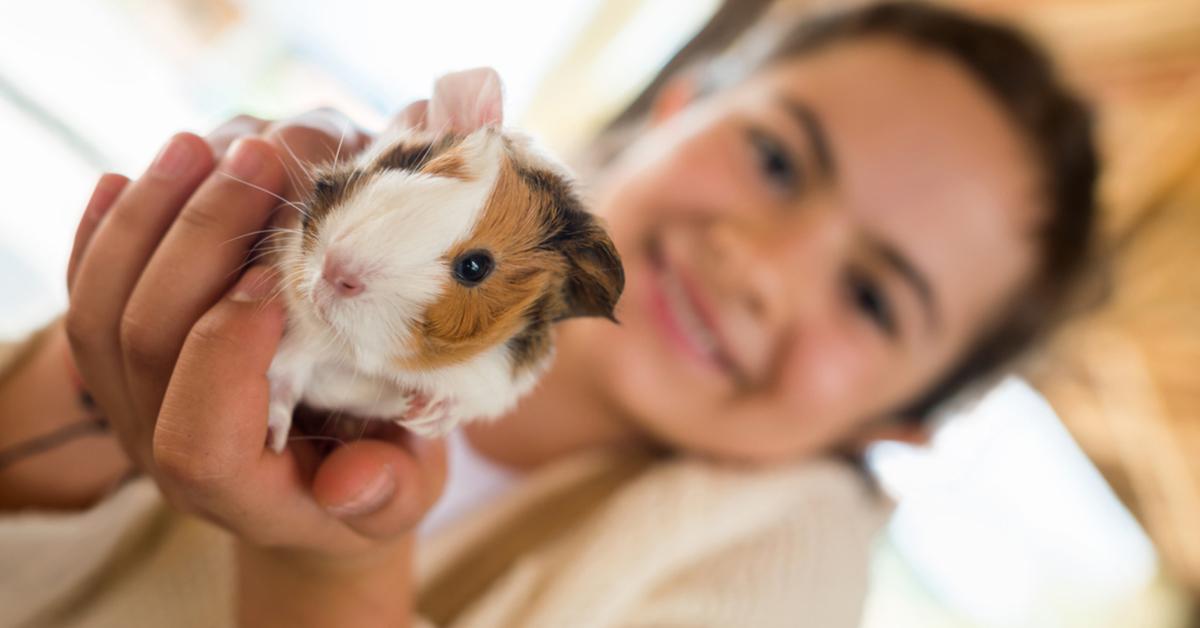
The best part about guinea pigs is without a doubt their innate, sweet disposition. Guinea pigs are more like gerbils in personality. They don’t mind being handled and they can even be cuddly, like a puppy. Whereas hamsters tend to nip and get aggressive, guinea pigs are friendly and relatively easy going, making them a smart choice for a young, first time pet owner.
Mouse or Rat
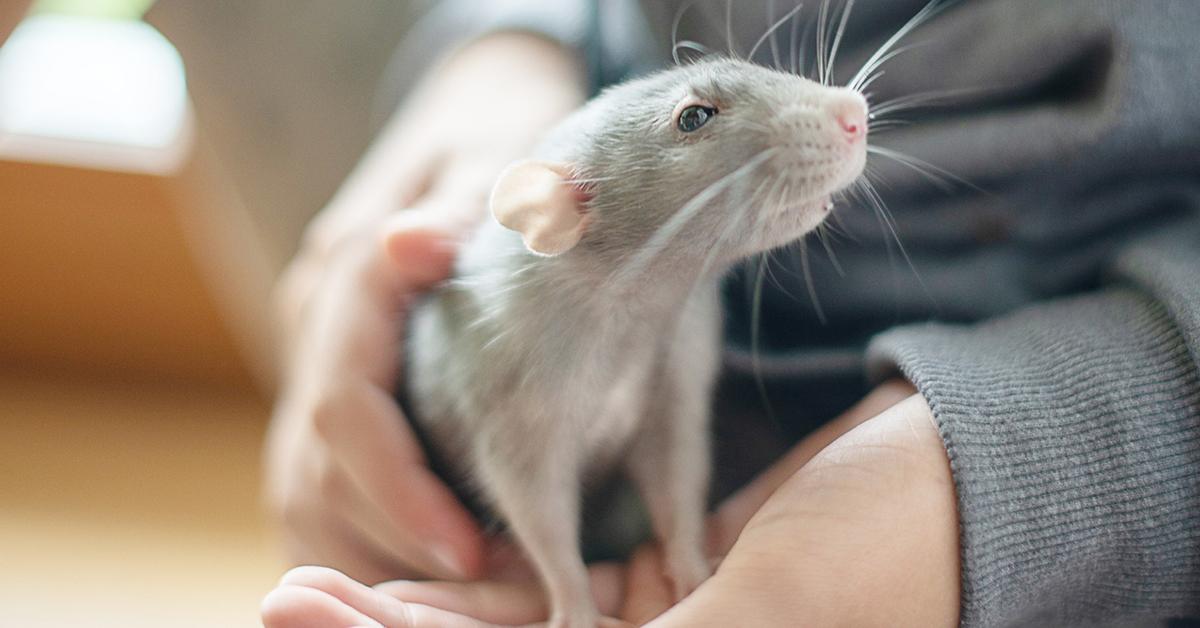
OK, just hear us out. Mice or rats are not for everybody, but for some children — and families — these can be good options. Rats tend to not nip, like hamsters might, and they’re also incredibly smart. Rats can make their way through mazes and obstacle courses, and they are perhaps one of the only small pets on this list that can actually be trained. They can be taught to play “fetch” or to learn other interactive tricks.
Like gerbils, though, a rat’s life span is generally its main downfall (besides the negative stigma of owning a rodent). Rats tend to live for only two to three years, so again, that could be difficult depending on your child’s age. Have a rat as a pet and it might be your child’s first experience with death, but again, it can also be used as an important opportunity to teach a child about grief and death.